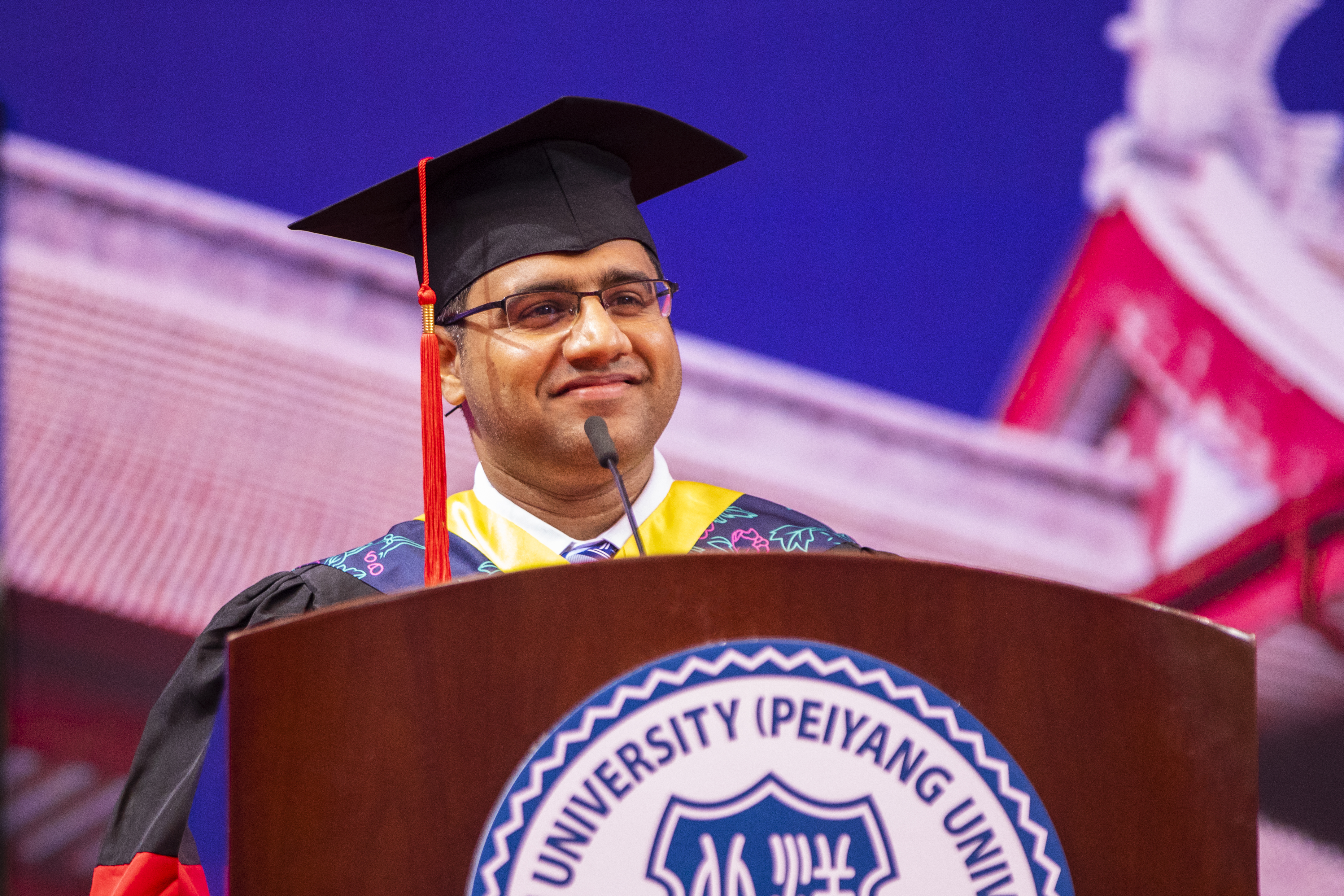By YIN Wei

Kashan Khan. (COURTESY PHOTO)
"Ni hao! I am Kashan Khan from Pakistan. I am very honored today to share my story with you."
At the graduation ceremony of Tianjin University (TJU) on July 5, Kashan Khan stood on the podium and delivered his speech in fluent Mandarin, earning rounds of warm applause from the attending teachers and other students.
While doing his graduation, Khan published 26 high-level papers, 16 of which he authored on his own or co-authored as the first or corresponding author. The cumulative impact factor of these papers exceeds 90, making him the doctoral student with the most published papers ever in his research group. Furthermore, he was a reviewer for more than 10 science citation index journals. His research contributions have been highly praised by academic circles both in China and internationally.
When asked about the key to his success, Khan attributed it to three factors: passion, diligence, and encouragement and guidance from his mentors.
Working in civil engineering has been Khan's dream since childhood. "My father is an engineer. When I was young, I saw many construction machines at his workplace, which sparked my interest in this field," he said.
After obtaining his bachelor's degree in Pakistan, Khan wanted to study in a country with strong civil engineering expertise and infrastructure capabilities. "I discovered that among the world's 10 tallest buildings, China has the most," he explained, adding that it convinced him that studying in China would be the best choice.
Khan came to China in 2016. It was the beginning of an adventure filled with both challenges and rewards.
Khan's doctoral supervisor, Professor Chen Zhihua, calls him dedicated and a selfless student. "He has a tenacious spirit, and I believe he will shine in the international field of civil engineering," Prof. Chen said.
With the help of teachers from the School of International Education, Khan quickly overcame the language barrier, obtaining various Chinese proficiency test certificates. This care and support made him thrive in his studies at the TJU, achieving success both in language and research.
His feelings for the TJU and China grew deeper. After graduating and receiving over 30 job offers from countries like China, Canada and the UK, Khan chose to stay at the TJU for postdoctoral research.
He is full of confidence and expectations for the future. He hopes to achieve breakthroughs in research and apply his knowledge to practical engineering to advance construction technology.
"I am especially grateful to the Chinese government for giving me this opportunity to study in China," he said. "I hope to use better research achievements to give back to China and contribute to building a community with a shared future for mankind."
This article was contributed by the TJU.
On June 22, the Sino-French satellite Space Variable Objects Monitor (SVOM) was successfully launched. Earlier, on May 3, China's Chang'e-6 lunar probe carried France's Detection of Outgassing RadoN to the moon, marking the first collaboration between the two countries in lunar exploration and France's debut in a lunar landing project. This year also celebrates the 60th anniversary of diplomatic relations between China and France, highlighting their longstanding cooperation in space.
Pushing the development of tech innovation is needed to achieve China's goal of becoming a leading sports nation by 2035, as well as becoming a modernized country.